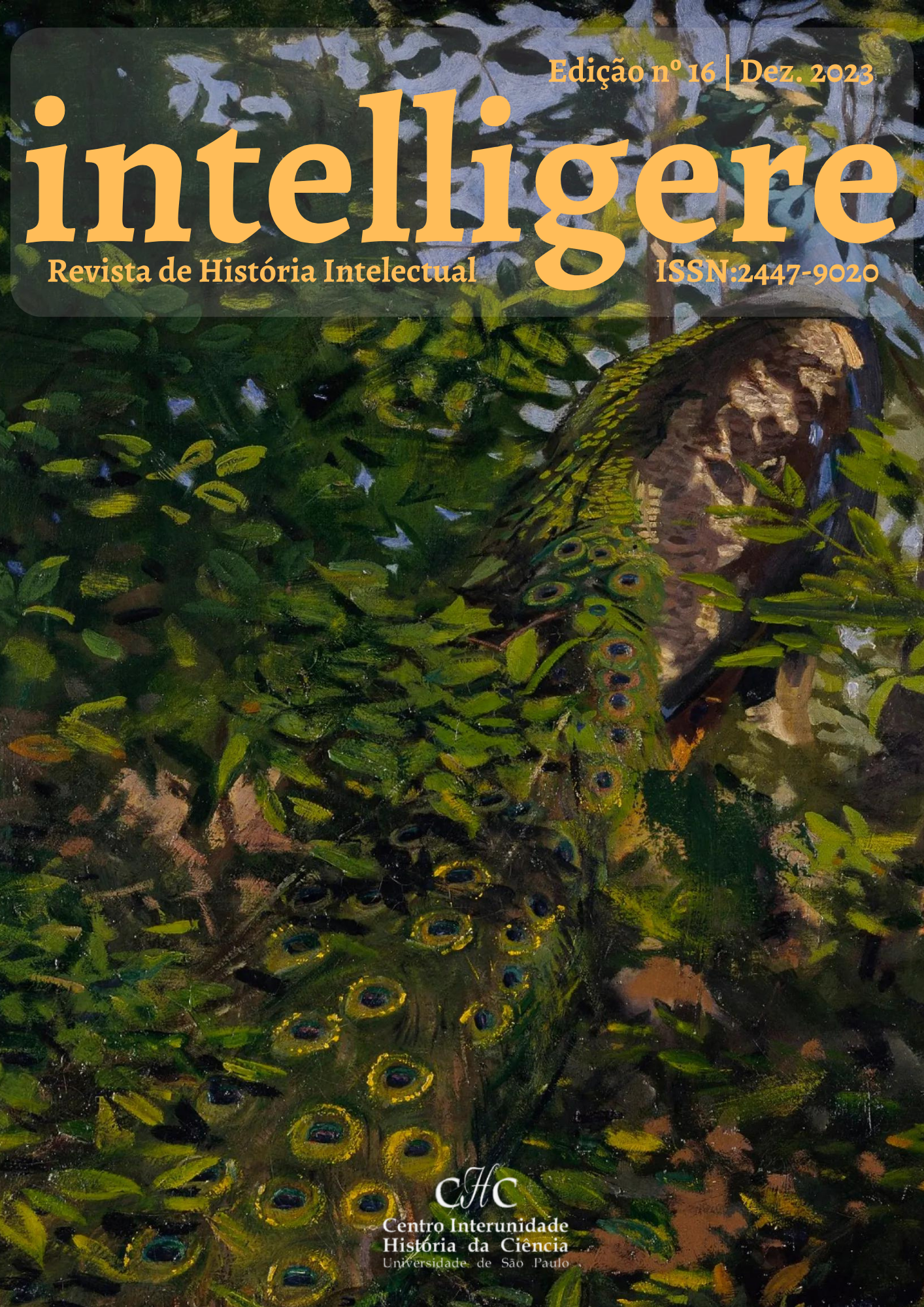Günther Anders arrives in Brazil to prevent the end of the world
DOI:
https://doi.org/10.11606/issn.2447-9020.intelligere.2023.214790Keywords:
Günther Anders, History, Monstruosity, Promethean Discrepancy, TechnologyAbstract
This review presents and discusses the Brazilian publication of Wir Eichmannsöhne: offener Brief na Klaus Eichmann (2001), a work that brings together the letters of the German philosopher Günther Anders addressed to Klaus Eichmann – son of the Nazi executioner Adolf Eichmann – in the 60s and 80s. Translated directly from the German edition by Felipe Catalani, Nós, filhos de Eichmann, has been published by Editora Elefante (March 2023). The book interrupts a hiatus of at least 16 years since Anders’ last volume was published in the country: the reissue of Kafka: pro & contra, by Editora Cosac Naify, in 2007 – the original dates from 1969 by Editora Perspectiva. The following review emphasizes the main categories mobilized by Anders throughout his work, in particular promethean discrepancy and monstrosity. We discuss his literary style and philosophical rigor. We highlight the critical tone of his political and moral reflections on modern society. We emphasize the link between his thought and an intellectual tradition known as philosophical anthropology. We look at the relationship between responsibility and historical consciousness. Finally, we express our desire for the continuation of translations of Günther Anders in Brazil, especially his monumental Die Antiquiertheit des Menschen (The Obsolescence of Man).
Downloads
References
ANDERS, Günther. La obsolescencia del hombre. Sobre el alma em la época de la segunda revolución industrial. Tradução: Josep Monter Pérez Valência: Pre-Textos, 2011a.
ANDERS, Günther. La obsolescencia del hombre. Sobre la destrucción de la vida en la época de la tercera revolución industrial. Tradução: Josep Monter Pérez Valência: Pre-Textos, 2011b.
ANDERS, Günther. Teses para a era atômica. Tradução: Alexandre Nodari e Déborah Danowski. Revista Sopro, nº 87, 2013.
ANDERS, Günther. Nós, filhos de Eichmann: carta aberta a Klaus Eichmann. Tradução: Felipe Catalani. São Paulo: Editora Elefante, 2023, 112 p.
ARENDT, Hannah. Eichmann em Jerusalém. Um relato sobre a banalidade do mal. Tradução de José Rubens Siqueira. São Paulo: Companhia das Letras, 1999.
ADORNO, Theodor; HORKHEIMER, Max. Dialética do Esclarecimento. Tradução: Guido Antonio de Almeida. Rio de Janeiro: Zahar, 1985.
CATALANI, Felipe. Günther Anders: fenomenólogo e agitador. Cadernos do LELPraT, v. 2, p. 101-127, 2021.
CATALANI, Felipe. A inocência perdida das forças produtivas: o progresso das armas e as origens da 'discrepância prometeica' (Walter Benjamin, Günther Anders). Revista Limiar, v. 9, 2022.
GEHLEN, Arnold. Antropología filosófica. Barcelona: Paidós, 1993.
KOSELLECK, R. Futuro passado. Contribuição à semântica dos tempos históricos. Tradução: Wilma Patrícia Maas, Carlos Pereira Almeida. Rio de Janeiro: Contraponto; PUC-Rio, 2006.
MARQUARD, Odo. Felicidad en la infelicidad. Buenos Aires: Katz, 2006, p. 9.
MARQUARD, Odo. Dificultades com la filosofia de la historia. Valencia: Pre-Textos, 2007.
PLESSNER, Helmuth. O problema da monstruosidade [Das Problem der Unmenschlichkeit]. Tradução: Sérgio da Mata. Artefilosofia, Ouro Preto, n. 7, p. 145-151, 2009.
Downloads
Published
Issue
Section
License
Copyright (c) 2023 Ricardo Mateus Thomaz de Aquino

This work is licensed under a Creative Commons Attribution 4.0 International License.
Autores que publicam em Intelligere concordam com os seguintes termos:
- Autores mantém os direitos autorais e concedem à revista o direito de primeira publicação, com o trabalho simultaneamente licenciado sob a Licença Creative Commons Attribution que permite o compartilhamento do trabalho com reconhecimento da autoria e publicação inicial nesta revista.
- Autores têm autorização para assumir contratos adicionais separadamente, para distribuição não-exclusiva da versão do trabalho publicada nesta revista (ex.: publicar em repositório institucional ou como capítulo de livro), com reconhecimento de autoria e publicação inicial nesta revista.
- Autores têm permissão e são estimulados a publicar e distribuir seu trabalho online (ex.: em repositórios institucionais ou na sua página pessoal), com reconhecimento da autoria e publicação inicial nesta revista.


